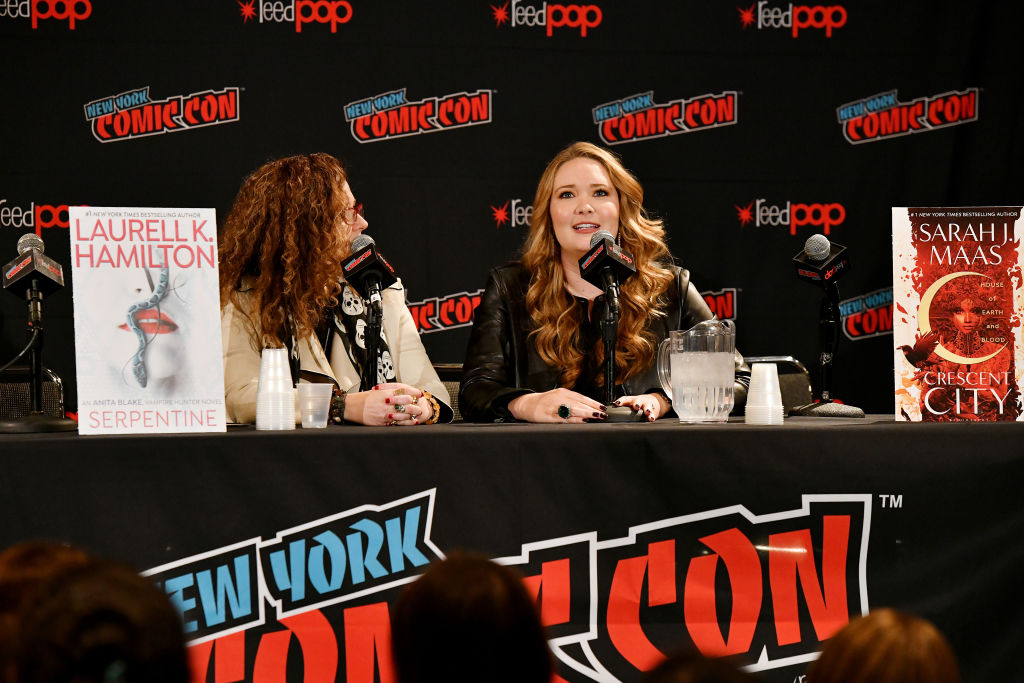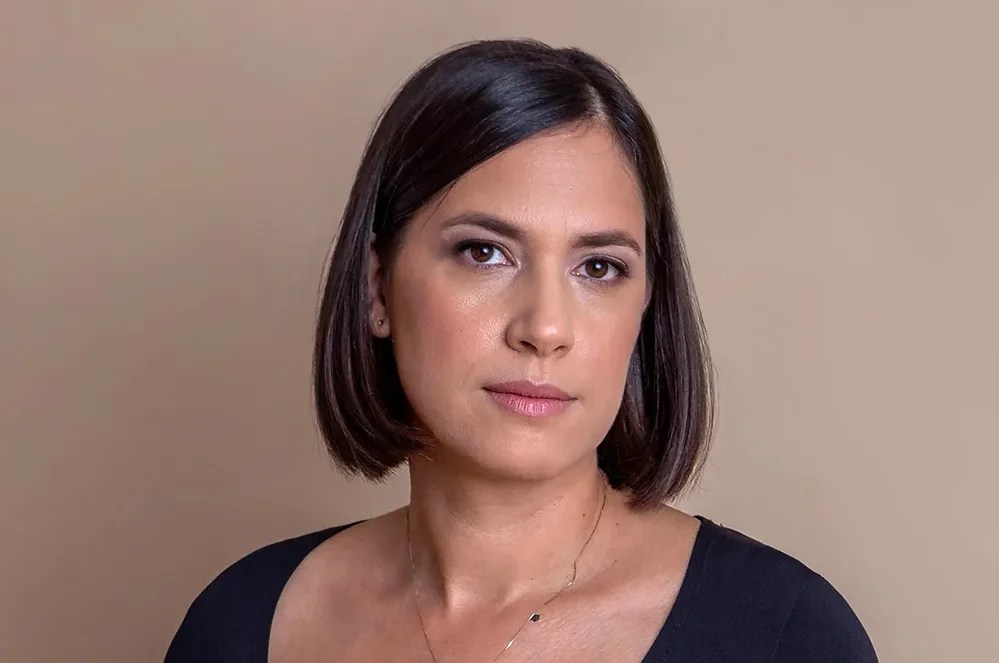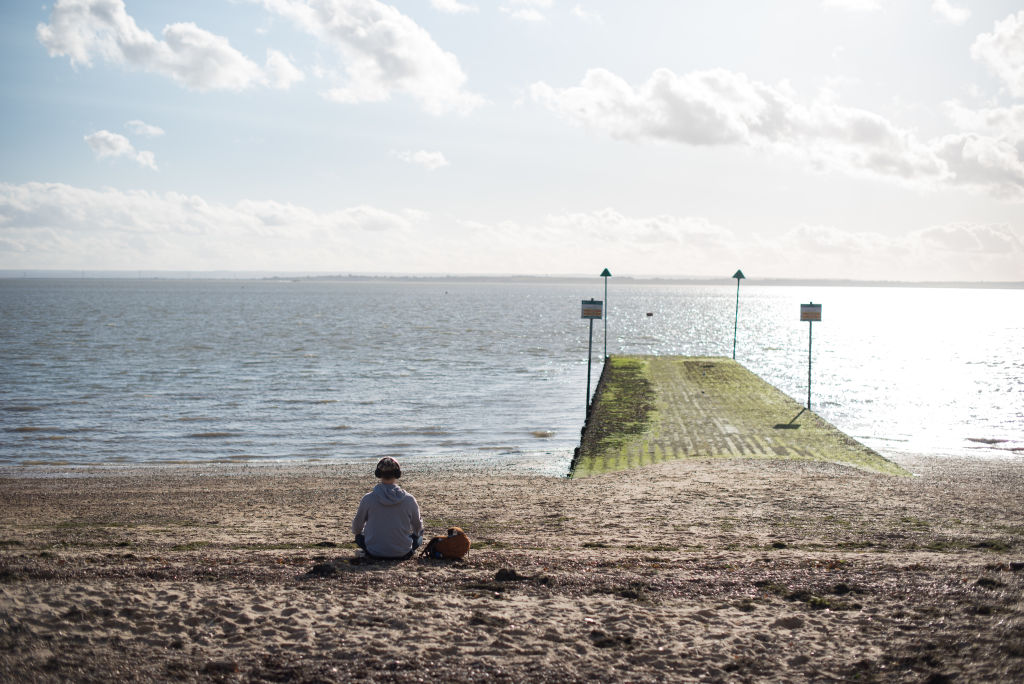A friend recently found himself trapped on a plane next to a young woman reading a Kindle bedecked with stickers of dragons and pointy-eared, hunky men. The font size was so large it was impossible not to see the sexually explicit text. He observed, “I was reading The Lord of the Rings; her book was more along the lines of I’m the Lord of Your Ring. I’ve never felt so uncomfortable.”
Welcome to the cultural phenomenon of romantasy — a newly mainstreamed trend fueled by TikTok, or rather BookTok. It’s a shame there isn’t room in the portmanteau name for “sex,” which is a crucial ingredient in the genre, made clearer in the alternative informal term “fairy porn.”
Romantasy is a blockbuster industry, netting publishers hundreds of millions of dollars every year, and so far, it’s been spearheaded by female American authors. Its leading light Sarah J. Maas, whose 2015 novel A Court of Thorns and Roses is considered the archetypal modern romantasy, has sold nearly 40 million copies.
Theoretically, I am the ideal romantasy reader. Loath to be a book snob, I am an enormous admirer of Jilly Cooper, and aged thirty-one, I regularly reread childhood fantasy classics such as the Chrestomanci series by Diana Wynne Jones. What could be better than a marriage of love and magic? But plowing through the oeuvres of Maas and other romantasy practitioners in my quest for the Cooper-Tolkien mashup I yearned for left me deeply disappointed.
The books are uniformly poorly written. “‘Give me everything,’ I breathed. He lunged, a beast freed of its tether,” is a typical Maas passage. Their worst aspects are ubiquitous: the faux-intimate use of the first-person narrative voice and the alternation between simplistic and verbose writing, for instance.
And as for the sex: romantasy novels don’t feature sex scenes; they revolve around them.
Consummation may not happen until the twentieth chapter, slow burn being a key romantasy trope, but the fantasy element is merely a vehicle for love and lust. It’s a far cry from Jilly Cooper, queen of the Eighties bonkbuster, whose sex scenes are clever, insightfully written and never feel gratuitous. In romantasy, however, phrases like “I pumped his length,” from Danielle L. Jensen’s A Fate Inked in Blood, should get medals for unerotic erotica. As a result, despite the exciting and titillating plot lines, I never felt truly immersed in an alternative magical universe, as I do when reading Philip Pullman or C.S. Lewis. I hated the sense that I was being told what to think and especially, to feel (namely, aroused).
Something tells me Spectator readers are unlikely to be making a beeline to their nearest Barnes & Noble to stock up on romantasy, but they may wonder: why are so many women reading it? One friend, who has developed a guilty addiction to the romance reading app Galatea, has an idea. Galatea, sister app of Inkitt, is big business, luring hundreds of thousands of readers to its ever-updating stories. Currently ranking above the New York Times in the Apple app store, it’s packed with basic romantic and erotic fiction, more often than not involving hunky werewolves.
I was initially amused by my friend’s lowbrow taste, but having learned how many women share it, I wondered whether women are seeking out hypermasculine fictional men because dominance and possessiveness have long ceased to be admirable traits in reality. In a post-Fifty Shades society, even fictional alpha men are to be frowned upon: Christian Grey is passé. But make an alpha male half-beast, and suddenly an animalistic, dominant nature is permissible. “If this guy weren’t a wolf,” says my friend, “it would not be OK. But he is, so it’s fine.”
The physique of a dragon rider or an immortal faerie also has a special appeal. Mortal men like to bulk up with protein shakes and post off-putting gym selfies. It’s so much sexier when their bulging biceps are a result of swinging a burning ax at their enemies.
Fantasy romances also contrast with today’s world, where looking for love has become admin, compartmentalized into apps to be scheduled and managed. Dates resemble job interviews, and the (illusion of) endless choice is draining. While people have begun fleeing dating apps like rats from a sinking ship — the stats don’t lie, it’s the end of days for swiping — we haven’t all started chatting to strangers. We’ve quit Hinge, but we’re still on our smartphones.
Romantasy is different: your fated mate appears, you have no choice in the matter, but conveniently, you love him back. “You’re mine and there’s nothing you can do about it,” can be an oddly comfort-ng message.
While I found myself frustrated by romantasy — on a literary level, I hasten to add — it is easy to understand its appeal. Romance plus fantasy is escapism squared, and the genre’s diverting and sensational plots, to say nothing of the beast-men and their rippling muscles, go a long way toward mitigating bad writing.
The televised versions of the series, tailored to appeal to both sexes, will undoubtedly be world-dominating. But until the Jilly Cooper of the genre arrives in a golden carriage, I’ve had enough of romantasy. I have the feeling I’ll be waiting a while.
This article was originally published in The Spectator’s March 2025 World edition.


























Leave a Reply